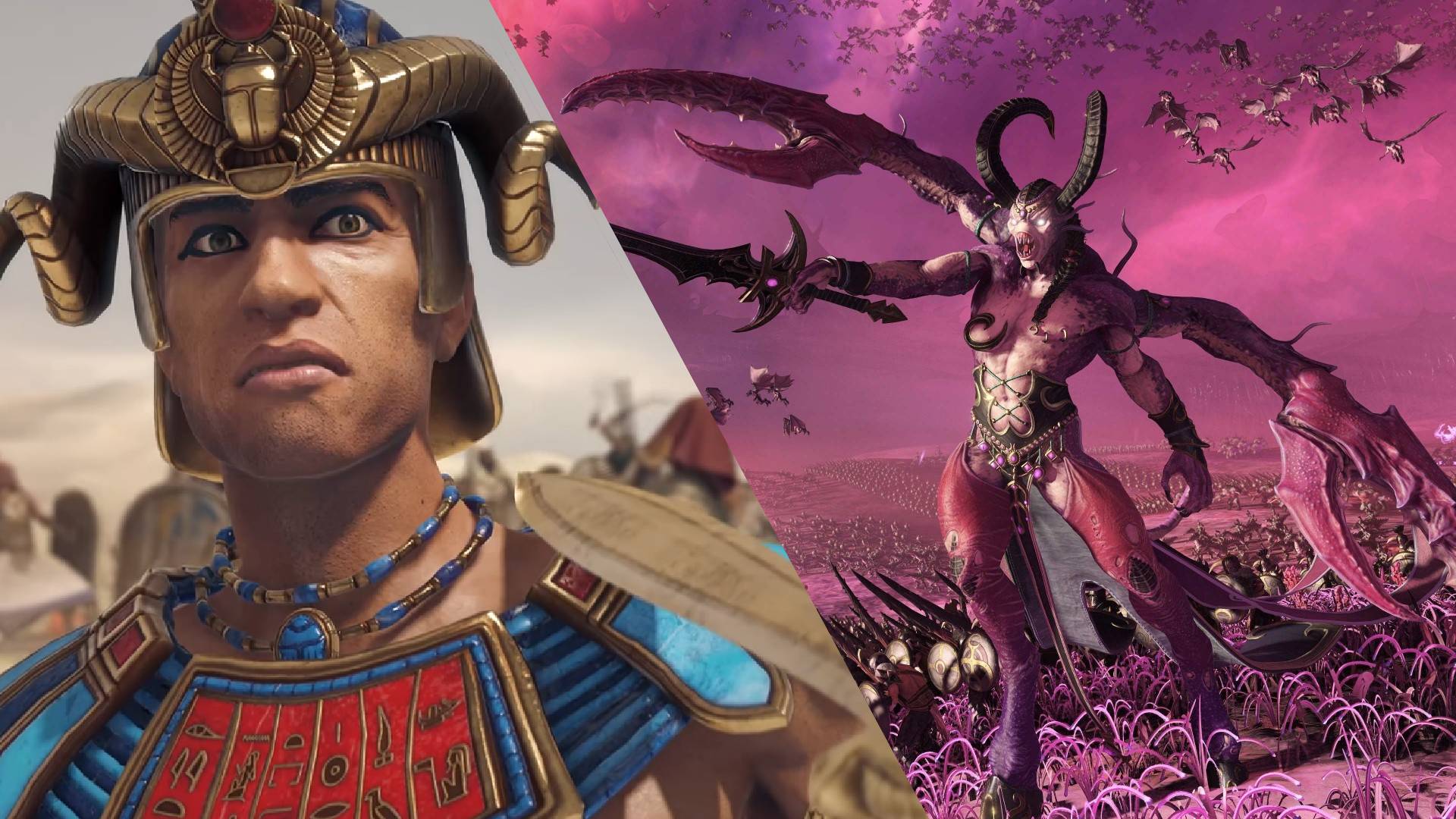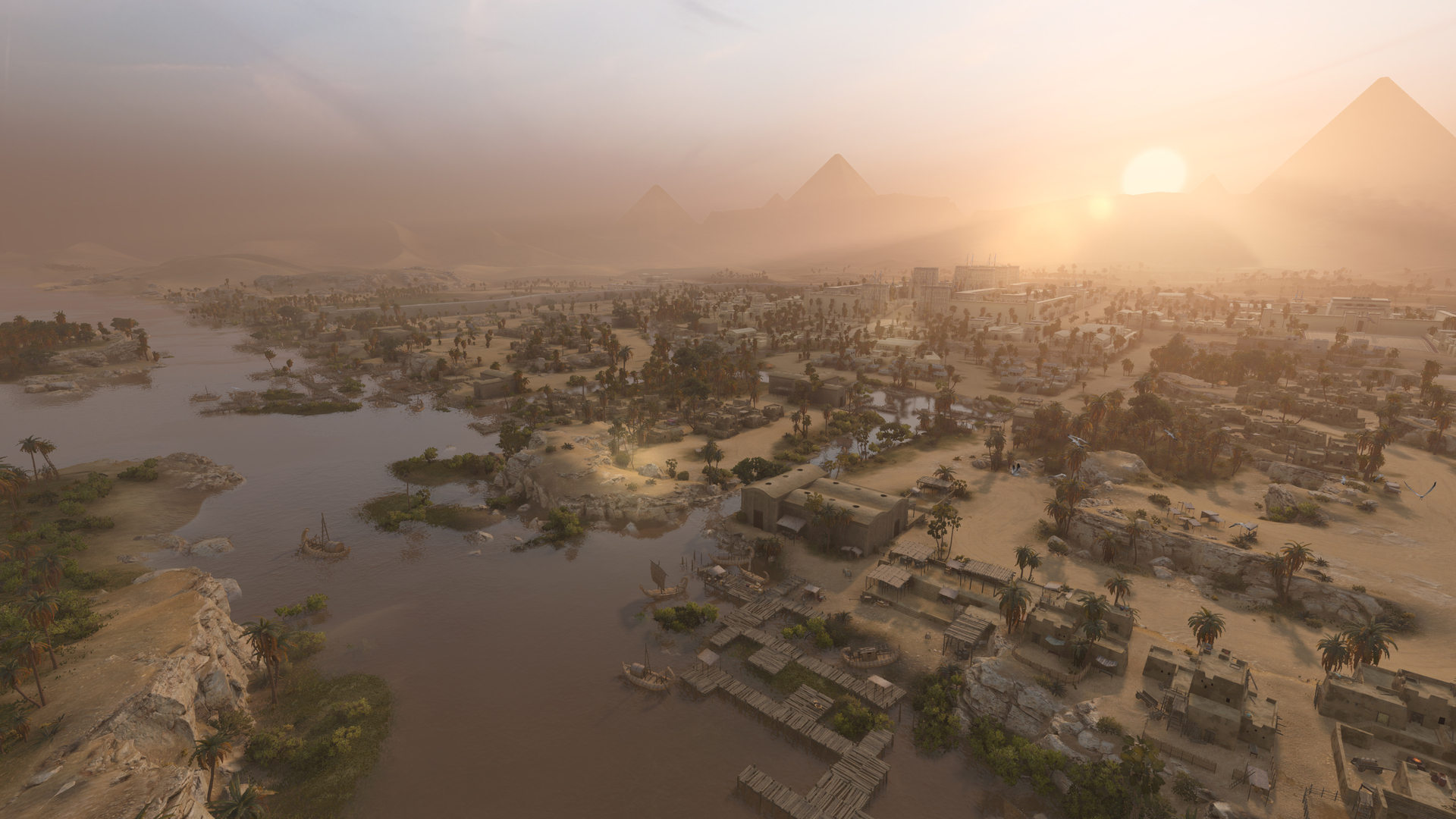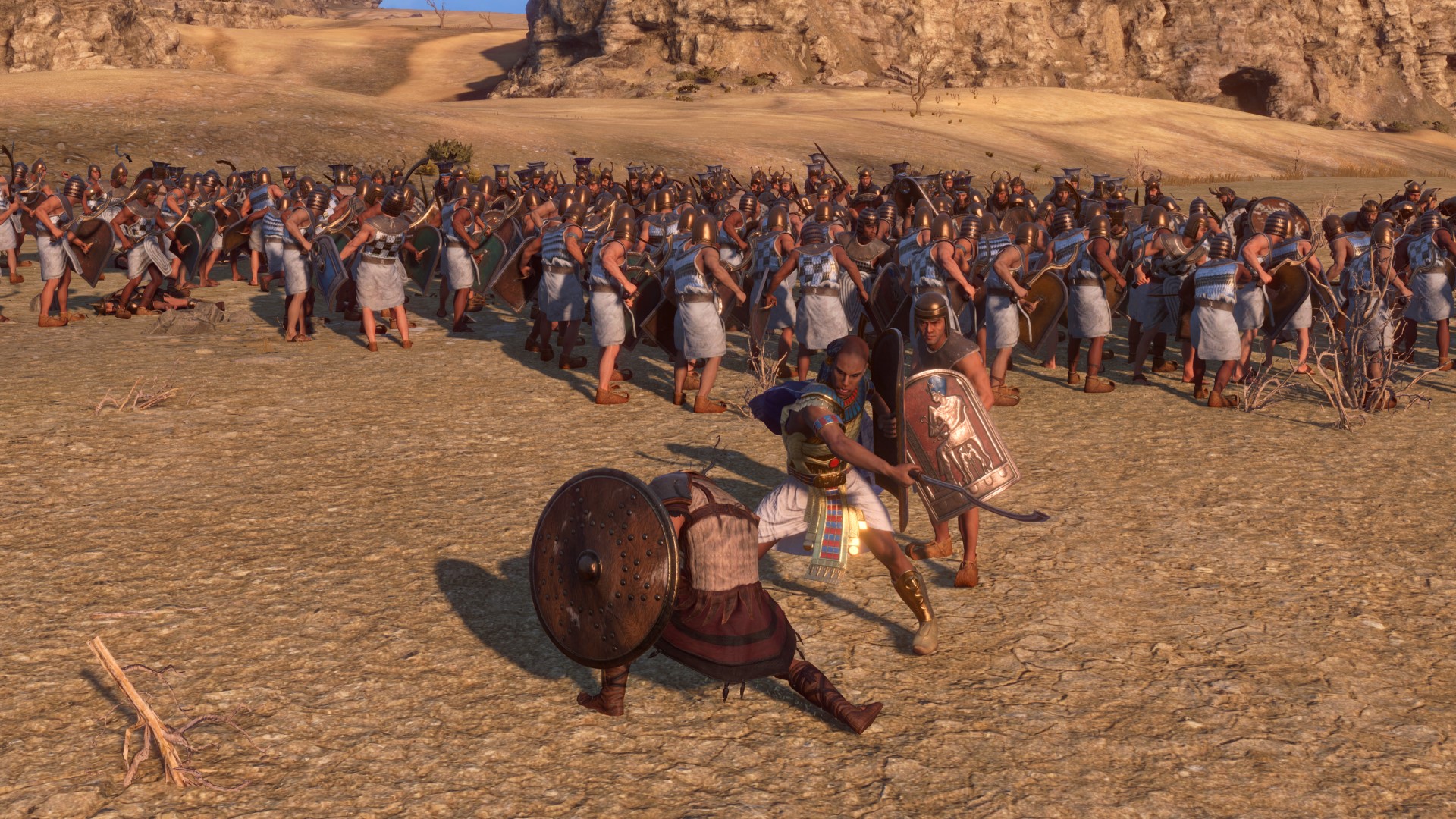Total War: Warhammer makes the likes of Total War: Pharaoh feel uninspired
Better than history

Sign up for breaking news, reviews, opinion, top tech deals, and more.
You are now subscribed
Your newsletter sign-up was successful
The large-scale real-time battles of the Total War series have been a staple of PC gaming for more than two decades now. However, in 2016, the series crossed a rubicon. Leaving history behind, Total War made a brave step into the world of fantasy with Total War: Warhammer.
This bold move gave us one of the best PC strategy games of recent years. It also marked a point of no return for the venerable series. Where once historically accurate ranks of centurions faced off in their plumed Roman helmets in Rome: Total War, now armies of Orcs, rat-people and elves took to the field, their forces flanked by fantastical beasts and mind-boggling siege engines. Even the boring, vanilla human faction boasts a gun that shoots fireworks.
By adopting Games Workshop’s off-the-wall Warhammer Fantasy setting, Total War was able to radically enhance the complexity and variety available to players during its setpiece battles. Though the simulation elements of battles are preserved, these new frontiers for the series allowed the games to act as something of a playground for fans old and new.
Built on fantasy tropes from the ground up, the Warhammer setting is designed to accommodate wildly different factions ranging from bog standard humans to flamboyant elves and hyper-aggressive Orcs. The whole thing breeds imagination and playfulness. Want to pit an army of steam tanks against twenty dragons? You can.
Fantasy vs reality

In the shadow of this imaginative new direction, the historical Total War games now appear lacking. As much as Total War: Pharaoh's dogged recreation of the Bronze Age Collapse satisfied my inner history buff, having played the Warhammer titles, I couldn’t help but feel that something was missing from the mix.
Pharaoh’s factions are mechanically distinctive and offer players a broad range of paths that they might take to survive. However, the game’s portrayal of historical figures struck me as bland, and never quite reached the characterful heights of the likes of Civilization 6. This is because Total War has always used conflict and battle to do the talking. During engagements, Ramesses and his honor guard are a distinctive unit, fulfilling a unique role. At court, however, he’s just another face, acting no differently to the cavalcade of bland talking heads that make up the game’s political mechanics.
The scale of the Total War games suits the theatrical melodrama of the Warhammer setting
Total War: Warhammer sidesteps this problem by using broad fantasy archetypes. Faction leaders like the human Emperor Karl Franz or vampire lord Vlad von Carstein are already larger-than-life figures. Spend ten minutes playing as either character and their voice lines, animations, and visual design will tell you everything you need to know.
Sign up for breaking news, reviews, opinion, top tech deals, and more.
Franz is an imposing sort, clad in ornate yet hefty armor-plating. He is practical and tough, but also ostentatious. Meanwhile, Vlad is gnarled and sinister, his mottled skin, red eyes, and missing nose telling you exactly what sort of vampire he is: a dark lord who bites first and asks questions later.
The scale of the Total War games suits the theatrical melodrama of the Warhammer setting. Among the morass of interlocking diplomatic trade systems, the individuality of historical figures like Seti and Ramesses is lost. However, much like the punchy and over-the-top designs of characters in Overwatch 2, Total War: Warhammer’s factions are wildly different. The tension created by these differences propels the game forward, giving players a distinct sense of identity and purpose during campaigns.
The end times

Pharaoh does try to take lessons from Total War: Warhammer, albeit with limited success. Representing the culmination of the Bronze Age Collapse, the final act of a Total War: Pharaoh campaign has you battle the onslaught of the Sea Peoples - a coalition of displaced tribal societies from the north. It’s a classic endgame crisis in the vein of Stellaris - an existential war that threatens your faction.
There’s plenty of tension to be had here, too. Fighting off waves of northern invaders adds a pleasing extra layer of strategic challenge to the closing acts of a Pharaoh campaign. However, the Sea Peoples Invasion pales in comparison to the endgame crisis from Total War: Warhammer: the invasion of the malevolent forces of the Chaos Gods.
It’s telling that Total War: Pharaoh has to sidestep history to provide its most interesting setpiece
This is, in part, because dramatic endgame crises like this are far better suited to fictionalized settings than their historical counterparts. The apocalyptic drama of these events adds zest to fantasy worlds while undermining the historical accuracy of real-world settings. For instance, we know that the Bronze Age Collapse was as much rooted in drought, disease, and migration as it was in flat-out invasion. Though debated by historians, it seems likely that the Sea Peoples arrived not so much to conquer Egypt as they did to mop up the remains of an already-fractured and dwindling empire.
It’s telling that Total War: Pharaoh has to sidestep history to provide its most interesting setpiece. By contrast, Total War: Warhammer’s endgame crisis was firmly rooted both in the emergent narrative of a given campaign and in the setting as a whole. Throughout the game, most factions have to mitigate 'Chaos Corruption,' a sort of magical disease that infects the world as the powers of Chaos grow more threatening.

As the campaign continues, northern tribes loyal to Chaos make increasingly daring raids, before full-on armies loyal to these dark forces emerge. Eventually, Archaon the Everchosen, a Sauron-esque big bad, arrives from the north to lay waste to the land.
Unburdened by history, Warhammer lets you get right to the dramatic battles
Total War: Warhammer doesn’t have to worry about ideas of authenticity or accuracy. Socio-economic factors play second fiddle to a sweeping battle between good and evil reminiscent of Tolkien’s universe or Dungeons & Dragons. Unburdened by history, Warhammer lets you get right to the dramatic battles and thrilling strategic challenges without bogging you down in the series’ relatively uninspiring diplomacy or trade mechanics.
In a series that’s ultimately all about the battles, the Warhammer setting serves the strengths of the Total War games far better than the non-fictional backdrop of Bronze Age Egypt.
Though the historical Total War titles offered a fantastic springboard for the series and produced classics like Rome: Total War, it’s the fantastical variety found in the likes of Total War: Warhammer that marks the series’ future. This isn’t to say that Total War has lost the ability to provide satisfying historical experiences, rather it will need to learn the lessons of its wildly successful fantasy titles if it wishes to rekindle the old magic.
Looking to broaden your gaming horizons? Check out our lists of the best single-player games and the best co-op games.

An editor and freelance journalist, Cat Bussell has been writing about video games for more than four years and, frankly, she’s developed a taste for it. As seen on TechRadar, Technopedia, The Gamer, Wargamer, and SUPERJUMP, Cat’s reviews, features, and guides are lovingly curated for your reading pleasure.
A Cambridge graduate, recovering bartender, and Cloud Strife enjoyer, Cat’s foremost mission is to bring you the best coverage she can, whether that’s through helpful guides, even-handed reviews, or thought-provoking features. She’s interviewed indie darlings, triple-A greats, and legendary voice actors, all to help you get closer to the action. When she’s not writing, Cat can be found sticking her neck into a fresh RPG or running yet another Dungeons & Dragons game.